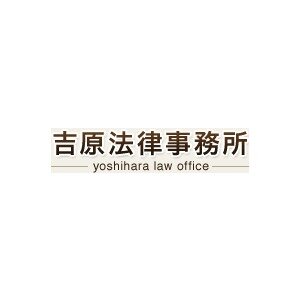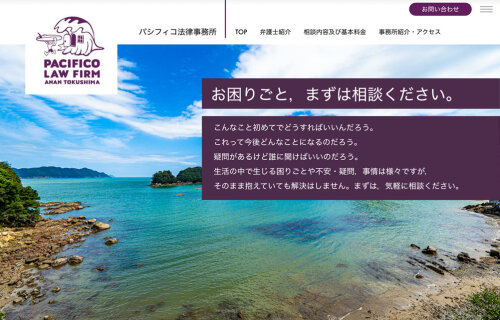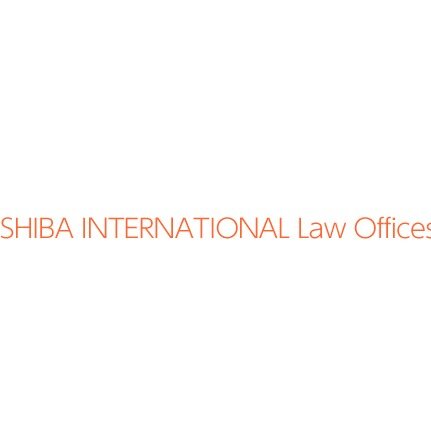Best Drug Crime Lawyers in Japan
Share your needs with us, get contacted by law firms.
Free. Takes 2 min.
Or refine your search by selecting a city:
List of the best lawyers in Japan
About Drug Crime Law in Japan
Drug crime in Japan is governed by some of the strictest laws in the world. The Japanese legal framework around drug offenses includes the Stimulant Drugs Control Law, Cannabis Control Law, Narcotics and Psychotropics Control Law, and Opium Law, among others. The possession, use, production, and trafficking of controlled substances are treated severely, with heavy penalties and imprisonment possible even for first-time offenders. Japan's zero-tolerance policy reflects its commitment to maintaining public safety and order.
Why You May Need a Lawyer
Individuals may require legal assistance in drug crime situations for several reasons:
- Arrest or Investigation: If you are arrested or under investigation for drug-related activities, a lawyer can protect your rights and advise on legal procedures.
- Charges Filed: If charges are formally brought against you, legal representation can be crucial in building a defense or negotiating plea deals.
- Legal Advice: Those facing accusations or involved in drug-related incidents may need guidance on their legal position and potential consequences.
- Expungement of Records: A lawyer can assist in clearing your criminal record if eligible, reducing the long-term impact on your life.
- International Cases: Foreign nationals may face deportation proceedings, making specialized legal assistance necessary.
Local Laws Overview
Japan's drug laws focus heavily on prevention and punishment, with key elements including:
- Possession and Use: Both are illegal, with severe penalties, including imprisonment and fines.
- Trafficking and Distribution: These offenses attract harsher sentences, especially for repeated or large-scale activities.
- Manufacturing and Cultivation: Illegal production or cultivation of controlled substances is a serious crime under Japanese law.
- Law Enforcement: The police are empowered to conduct thorough investigations, including search and seizure, and trials typically have high conviction rates.
- Age and Nationality Considerations: Penalties apply similarly regardless of age or nationality, though foreign nationals face additional immigration consequences.
Frequently Asked Questions
What substances are considered illegal in Japan?
Japan's controlled substances include cannabis, cocaine, heroin, MDMA, methamphetamine, and certain prescription medications without proper authorization.
What are the typical penalties for drug offenses in Japan?
Penalties can range from fines and short-term detention for minor offenses to lengthy prison sentences for serious or repeated crimes, along with potential deportation for foreign nationals.
Is medicinal use of cannabis legal in Japan?
No, Japan does not currently recognize the medicinal use of cannabis, and possession or use of cannabis products is illegal.
Can a foreign national be deported for drug offenses?
Yes, foreign nationals convicted of drug crimes in Japan may face deportation and subsequent entry bans.
How long does a drug-related criminal record last in Japan?
A criminal record will persist unless expunged, which is not easy to achieve and may require legal assistance.
Can police search my home without a warrant in Japan?
Generally, police require a warrant, but there are exceptions in cases of flagrante delicto or urgent necessity.
What should I do if accused of a drug crime in Japan?
Seek immediate legal advice and refrain from making statements until consulting with a lawyer.
Are drug tests commonly used by the police in Japan?
Yes, police may use drug testing as part of their investigation processes, especially during arrests for suspected drug use.
Can I appeal a drug crime conviction in Japan?
Yes, you have the right to appeal a conviction, and a lawyer can assist in navigating the appeals process.
Will drug crime charges affect my employment in Japan?
Yes, employers can terminate employment based on criminal charges, and a conviction could make future employment difficult.
Additional Resources
For further assistance, you may consider contacting the following:
- Japan Legal Support Center: Provides information on legal procedures and connects individuals with legal professionals.
- The Embassy or Consulate: If you’re a foreign national, your embassy can sometimes provide legal assistance or advice.
- Nihon Bengoshi Rengōkai (Japan Federation of Bar Associations): Can recommend lawyers who specialize in criminal defense.
Next Steps
If you need legal assistance for a drug-related issue, consider taking these steps:
- Contact a qualified criminal defense attorney, preferably one who specializes in drug crimes.
- Prepare any relevant documents and a timeline of events related to your case.
- Follow your lawyer’s guidance, especially regarding courtroom appearances and interactions with law enforcement.
- Consider the potential consequences and discuss possible strategies with your legal counsel.
- If you're in need of financial assistance for legal fees, inquire about legal aid services that might be available.
Lawzana helps you find the best lawyers and law firms in Japan through a curated and pre-screened list of qualified legal professionals. Our platform offers rankings and detailed profiles of attorneys and law firms, allowing you to compare based on practice areas, including Drug Crime, experience, and client feedback.
Each profile includes a description of the firm's areas of practice, client reviews, team members and partners, year of establishment, spoken languages, office locations, contact information, social media presence, and any published articles or resources. Most firms on our platform speak English and are experienced in both local and international legal matters.
Get a quote from top-rated law firms in Japan — quickly, securely, and without unnecessary hassle.
Disclaimer:
The information provided on this page is for general informational purposes only and does not constitute legal advice. While we strive to ensure the accuracy and relevance of the content, legal information may change over time, and interpretations of the law can vary. You should always consult with a qualified legal professional for advice specific to your situation.
We disclaim all liability for actions taken or not taken based on the content of this page. If you believe any information is incorrect or outdated, please contact us, and we will review and update it where appropriate.
Browse drug crime law firms by city in Japan
Refine your search by selecting a city.














